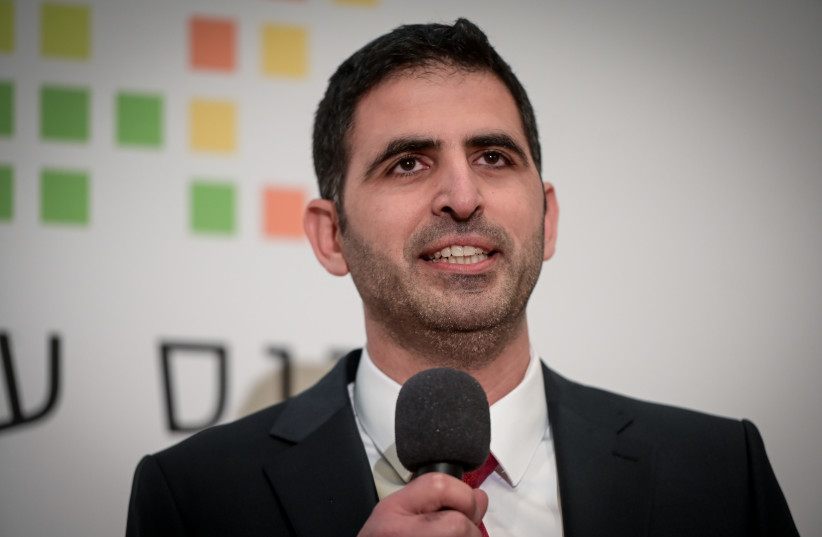There has been extensive deliberation in recent months surrounding Communications Minister Shlomo Karhi’s proposed broadcast reform. It aims to centralize authority over regulation, licensing, and viewer data collection. While proponents argue that the reforms are intended to enhance competition in the small Israeli broadcast market, critics argue that the real objective is to exert government control and politicize regulatory bodies.
The current broadcast system in Israel faces challenges stemming from its small market size, linguistic limitations, migration of advertising revenue to digital platforms, susceptibility to political influence, regulatory fragmentation, unequal production requirements for local and international platforms, and outdated ratings and data measurement methods.
While there is a consensus that reform is needed, the specific proposals put forward by Karhi have been perceived by some as having the potential to exacerbate some of these issues, particularly political influence and news quality concerns.
The broadcast proposal isn’t Karhi’s first controversial move. He recently generated controversy by attempting to dismiss the current chairman of the Israeli Postal Company, Mishael Vaknin, which led to a rebuke from the High Court of Justice. The court froze the decision and warned that it would be reversed if the court was not provided with a satisfactory explanation.
Earlier, in a Purim holiday message to his social media followers, Karhi sparked outrage by telling prominent IDF reservists who opposed the government’s plan to overhaul the judiciary that they could “go to hell.” These actions have added to the growing criticism of Karhi’s leadership and decision-making.
Karhi (Likud) is in his first stint as a minister, after serving as an MK since 2019. An accountant by trade, he holds a master’s degree and PhD in industrial engineering and management from Ben-Gurion University of the Negev.
In an interview with The Jerusalem Post, Karhi elaborated on his views regarding privatization, connectivity, and the controversy surrounding his broadcast reform.
Let’s start with an overview of the Communications Ministry’s top-billing goals for the coming year.
There are two central vectors here that lead the ministry. Everything else gets lower priority. First there’s the broadcasting law, a reform that will implement changes that haven’t been made for decades because the central players who control almost everything in the broadcasting space have formed several committees in order to keep the market very stable, very concentrated, and very homogeneous.
The second vector is cellular connectivity: coverage and cellular reception. 5G [rollout] is something we inherited [from the last government], and in a really poor state.
Increasing connectivity has been a long-standing goal for the ministry. Can you elaborate a little bit about what you’re doing from a 5G perspective?
[Our 5G rollout] was ranked by Ookla at 73rd in the world, next to several poorly performing countries. I presented this to the prime minister, who said this is something we can’t accept, and we moved forward with it. Today, we are in 64th place. We’ve improved a bit, but it’s really not enough. We’ve moved up as a result of working with existing infrastructure, but we’re now working with vendors who will incentivize and stimulate the market through joint ventures in education, health, transportation, and the hi-tech periphery, [and we’re installing new infrastructure as well]. In Judea and Samaria, for example, we’re installing 12 antennas [to increase connectivity in the area]. We’re investing a lot – several tens of millions – in this project.
The ministry is also responsible for the privatization of the post office which is currently under way. Most recently, you attempted to oust the current post office chairman, Mishael Vaknin, but your decision was frozen by the High Court. What’s going on there?
The post office’s service is bad. We’re trying to do what is possible within the limitations of responsibility without being granted the authority [to fully handle the issue]... this is how it is in our country today.
The chairman has caused many problems – the quality of service to the public has declined, and he hasn’t done what’s been required of him. The professionals in the office here all say send him home, but the [High Court] will simply bring him back, which means that I can practically do nothing.
By the way, the media is quite biased on the subject of this chairman... because it’s a name from the Likud that wants to make order. So they prepare him and watch him, and now he’s a saint because Karhi is trying to take care of the problem.
But it’s fine; we’re taking it one step at a time, and the public should not be worried about it.
Speaking of privatization, it seems as though you’re making a universal move toward privatized broadcasting. In an ideal future, is there any public broadcasting at all?
I think the market knows how to do news and current affairs very well, even without the state’s approval.... In my opinion, there is no need for public news broadcasts, but this is off the agenda. I am not dealing with it today, at the request of the coalition leaders, and of the justice minister, who said leave it at that.
On that point, you’ve been criticized for your move to remove the Israeli Public Broadcasting Corporation’s ability to make revenue from advertisements.
What I’m addressing with the broadcasting law [are areas] that harm competition. Where [the IPBC] hurts competition in the private market is in that it can sell advertisements for much cheaper compared to the private players. In fact, it receives around NIS 700 million a year from the public, and in addition it puts into the budget a few tens of millions more from the sale of advertisements. It’s blocking competition in the market. Private broadcasters should benefit from private money [via the advertisement market], and public broadcasting should benefit from the public budget.
The primary point of contention surrounding the broadcast reform seems to be the fear that your new, streamlined regulator will have the ability to monitor and censor content that the government doesn’t agree with. What’s your response to that criticism?
There was a section in the law which I included in the application that says the broadcast must be balanced and diverse, which I included in order to emphasize that there should be balanced and diverse content. The criticism I received is that if it is written in the law, it means that the regulator can monitor content. I’ve accepted that criticism, and this section will be removed; it will not be included. The new regulator does not touch the content in any way.
Today, the current regulator approves the broadcast schedule, tells you how much news to make, how many advertisements to put on, and interferes with everything. Enough already. The new regulator I am setting up has no authority to interfere in the content.
As it is today, I could call the chairman of the current regulator – whose entire board is practically appointed by the communications minister – and say “Look, they spoke like that, they said this about me like that, they said that about the government – apply sanctions, give fines.” In the new regulator being established, there is no such thing. It does not have the authority to hand out fines for content. It is a regulator designed so that there will not be harm to competition.
Even if I myself were the new regulator, I wouldn’t have the authority to monitor content. We have received the public’s comments on this issue, and it will be completely disconnected from the content being broadcasted.
So there would be no limitations on the content broadcasted? What if I decided “Here, I’m establishing my own TV channel, and we exclusively broadcast pornography.”
You could do it. According to the new law, you can broadcast that, though if you do, nobody will watch your content. Take the current digital broadcasting market as an example. Nothing is stopping Next or Sting from broadcasting sex, violence, whatever they want. But they don’t do it, because it doesn’t sell to mainstream audiences. If I’m watching TV and I see that, I pick up my remote and I change the channel. They don’t need the government to regulate that; the market does it better than all of us. The public will decide with their remote.
Then could there be a channel that deviates against the State of Israel?
If it violates the law, people can file a complaint to the police, or to the court. Otherwise, you can broadcast anything, even slander or propaganda – the public will simply not watch it. They will have enough other options for channels to watch, options that are not available today.
Today, the public is a captive audience. If you are not completely right-wing, then you’re not on Channel 14, and you’re a captive of the [few] other available channels. I want there to be a lot more channels. Imagine the face of the media in another two or three years: you will have from Channel 11 to 20 [of news channels to choose from]. You will have variety, and this will act to balance out the extremism seen today. •

